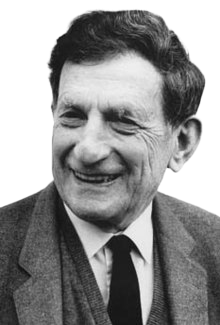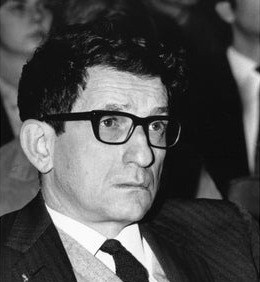Documentary
David Bohm
Learn about the American-British theoretical physicist who brought unconventional ideas to quantum theory, neuropsychology, and more throughout the the twentieth century.
Read More
The spiritual as well as scientific illumination was sought by the idealistic scientist, whose views are still relevant within these books.

In this landmark book, he presents a quantum physics theory that regards the entirety of existence as a single unit. He makes complicated ideas accessible to anybody interested in the nature of reality by writing plainly and without technical jargon.

The emphasis is on demonstrating how the quantum theory can be developed naturally, starting with the previously existing classical theory and progressing step by step through the experimental facts and theoretical lines of reasoning that led to the quantum theory's replacement of the classical theory.

An argument that science has lost its way in recent years and has to embrace a more holistic perspective of creation that returns the value of innovation and dialogue for everyone, not just specialists.

David Bohm was a theoretical physicist who contributed significantly to a number of subjects.
Bohm resisted his father's wishes of pursuing some practical employment, like the family's furniture company, in order to pursue academia. Bohm followed graduate studies at the California Institute of Technology and subsequently the University of California at Berkeley (Ph.D., 1943), where he collaborated with physicist J. Robert Oppenheimer, after getting a bachelor's degree from Pennsylvania State College in 1939. Bohm joined Princeton University in 1947.
Through the teachings of the Indian mystic Jiddu Krishnamurti, with whom he co-wrote The Ending of Time, Bohm's later works grew increasingly philosophical; Marxism's impact on him gave way first to Hegelianism, then theosophy (1985). Wholeness and the Implicate Order (1980), Bohm's most renowned later work, also addressed with wider concerns of the nature of humanity and awareness.
On October 27, 1992, David Bohm died of a heart attack in London. He was 74 years old.
I love this man! Like an old friend giving you guidance of how you should proceed with your science to understand what you're trying to understand about the universe. No book ever speaks to my heart like this one. Every sentence says that he knows exactly what I want, and what I'm not confident about being able to grasp.
Nobody in history has even come close to matching him. This is a fantastic book. It depicts him at an early stage of his creative process, when his ideas were still developing. His other writings, in which he converses with individuals, are more developed.
Very solid text on quantum theory from 1951. Assumes a solid background in classical mechanics, electromagnetism, and optics. As well as a decent facility in math - Fourier analysis, integral equations et al. Not a light read. But refreshingly thorough. Boom does not hide away the hard bits, a common tactic of lesser minds/writers, but tackles them head on.
The orientations of mind and spirit most conducive to doing that — in science, in art, and in all domains of human life — is what Bohm goes on to examine in the remainder of the thoroughly awakening On Creativity. Complement it with pioneering psychologist Jerome Bruner on the six pillars of creativity and Leonard Cohen on its mystique,